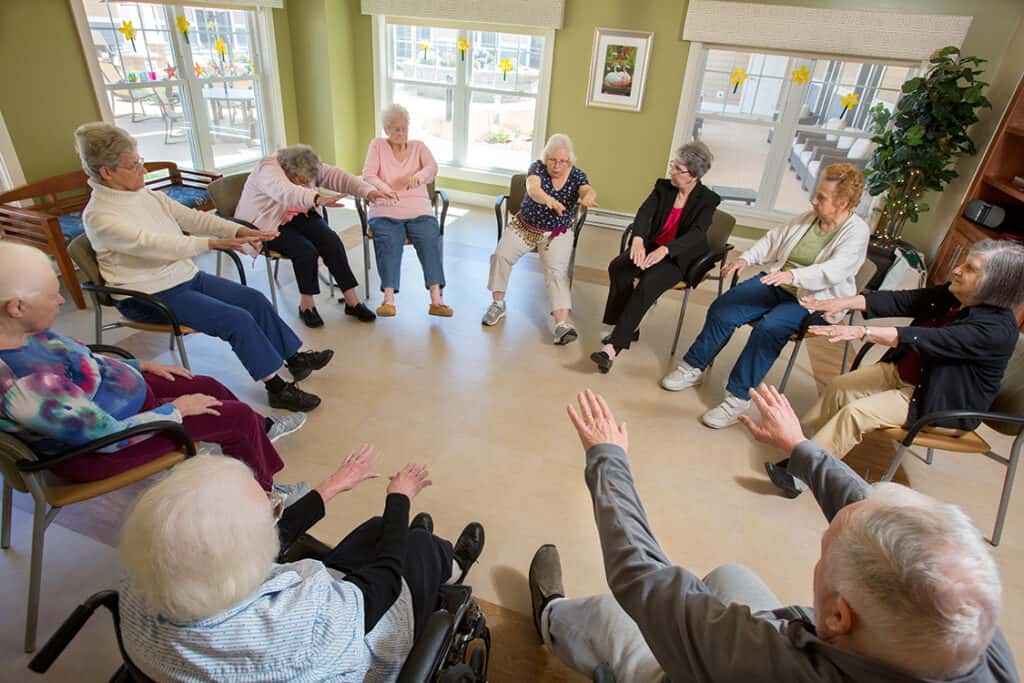Trusted Memory Care homes providing constant support and security.
Trusted Memory Care homes providing constant support and security.
Blog Article
The Function of Assisted Staying In Providing Specialized Care for Mental Deterioration Clients
The provision of specialized treatment for dementia patients within assisted living facilities is significantly identified as a vital element of reliable dementia monitoring. These atmospheres are created to address the special cognitive and psychological challenges encountered by individuals with mental deterioration, supplying tailored support that advertises safety and well-being.
Comprehending Dementia Treatment Demands
Comprehending the care demands of people with dementia is critical for giving efficient assistance and enhancing their lifestyle. Mental deterioration is a dynamic neurological condition that influences cognitive functions such as memory, reasoning, and communication. Individuals with mental deterioration typically need support with daily tasks, individualized care plans, and psychological support.
Effective dementia care involves identifying the unique difficulties dealt with by each person. This consists of recognizing the stages of dementia, which can vary from mild cognitive disability to advanced phases requiring thorough support. Treatment needs might incorporate support in taking care of everyday regimens, medicine adherence, and maintaining social interactions to stop seclusion.
Additionally, sensory stimulation and acquainted atmospheres can substantially enhance the health of people with dementia. Caregivers should be trained to determine behavioral adjustments and employ methods customized to each person's choices and past experiences. Techniques such as recognition treatment and reminiscence can aid interact properly and promote a sense of safety and security.
Ultimately, successfully resolving the treatment requirements of people with mental deterioration needs a thoughtful technique, recurring training for caretakers, and a commitment to preserving self-respect and regard throughout the caregiving procedure.
Advantages of Assisted Living

Assisted living advertises social interaction among residents, fostering a sense of neighborhood and belonging. Engaging with peers can ease feelings of isolation, which are usual in those living with mental deterioration.
Additionally, several assisted living facilities use support with daily tasks, such as medication management, bathing, and dish prep work. This support allows homeowners to maintain their independence while ensuring their health and wellness and health are prioritized. Ultimately, assisted living acts as a useful resource, balancing treatment and autonomy for individuals with mental deterioration and their family members.

Specialized Programs and Activities
(Assisted Living Charlotte)Recognizing the one-of-a-kind demands of people with mental deterioration, several nursing home execute specific programs and activities created to improve cognitive function and advertise general wellness. These programs usually include cognitive stimulation tasks that engage citizens in memory games, problems, and reminiscence therapy, which encourages the sharing of personal stories and previous experiences.
In addition, art and songs treatment play considerable functions in cultivating imagination and psychological expression (Memory Care). Engaging homeowners in paint, crafting, or music sessions can supply restorative advantages, aiding to reduce anxiety and enhance state of mind. Physical tasks, such as mild exercises and dance sessions, are also crucial, as they advertise movement and physical wellness while encouraging social interaction amongst homeowners
Structured everyday regimens are frequently established to offer a feeling of stability and predictability for individuals with dementia. These routines can include scheduled dish times, group activities, and individualized care strategies that satisfy individual passions and capacities. By creating an enriching atmosphere full of tailored activities, helped living centers not only enhance the lifestyle for mental deterioration clients yet likewise cultivate a sense of area and belonging.
Trained Team and Assistance
(Memory Care Facilities Charlotte)In helped living facilities, the visibility of trained team is crucial for offering effective support to people with dementia. These specialists have specialized knowledge and skills to attend to the special demands of locals, ensuring their security, comfort, and well-being. Team member get training in mental deterioration care, that includes understanding the development of the disease, identifying behavior changes, and utilizing effective interaction approaches.
Moreover, experienced staff are geared up to carry out customized care strategies customized to each local's choices and capacities. This customized strategy promotes a sense of freedom and dignity, allowing homeowners to involve in purposeful tasks that boost their quality of life. The staff likewise play an essential role in monitoring wellness and wellness, immediately recognizing any type of adjustments in problem that might need medical focus.
Along with direct care, experienced personnel offer emotional assistance to locals, assisting to alleviate feelings of view it now complication and anxiousness that often go along with dementia. Their caring strategy creates a caring setting where citizens really feel valued and recognized - Memory Care. Ultimately, the knowledge and dedication of trained staff are essential in delivering comprehensive care that fulfills the intricate needs of individuals living with mental deterioration in assisted living setups
Family Involvement and Resources
Household involvement plays a considerable duty in the treatment of individuals with dementia in assisted living centers. Engaging relative in the care procedure not only improves the emotional well-being of the local yet likewise cultivates a joint environment where treatment plans can be customized to individual requirements. Families can give important insights right into the choices, history, and actions of their liked ones, which can educate caregivers and result in more customized care approaches.
Moreover, assisted living centers frequently supply sources for families, such as support system and academic workshops. These resources can assist family members recognize dementia, enhance interaction strategies, and establish coping systems. Participation in these programs can encourage household participants, furnishing them with the tools necessary to support their enjoyed ones efficiently.
In addition, routine interaction between households and staff is essential. This recurring discussion permits households to stay informed regarding their loved one's development and any type of changes in treatment strategies. Eventually, a solid collaboration in between families and assisted living centers cultivates a setting of depend on and understanding, making certain that individuals with mental deterioration get the specialized care they are entitled to while keeping their family members links.
Verdict
To conclude, helped living facilities play a crucial duty in attending to the unique requirements of dementia patients through personalized care and support. By promoting risk-free atmospheres, promoting social interaction, and implementing organized routines, these facilities improve the total well-being of citizens. The participation of qualified personnel and families additionally improves the care experience, making certain that individual choices and histories are respected. Eventually, assisted living supplies crucial sources that significantly improve the lifestyle for those living with dementia.
Report this page